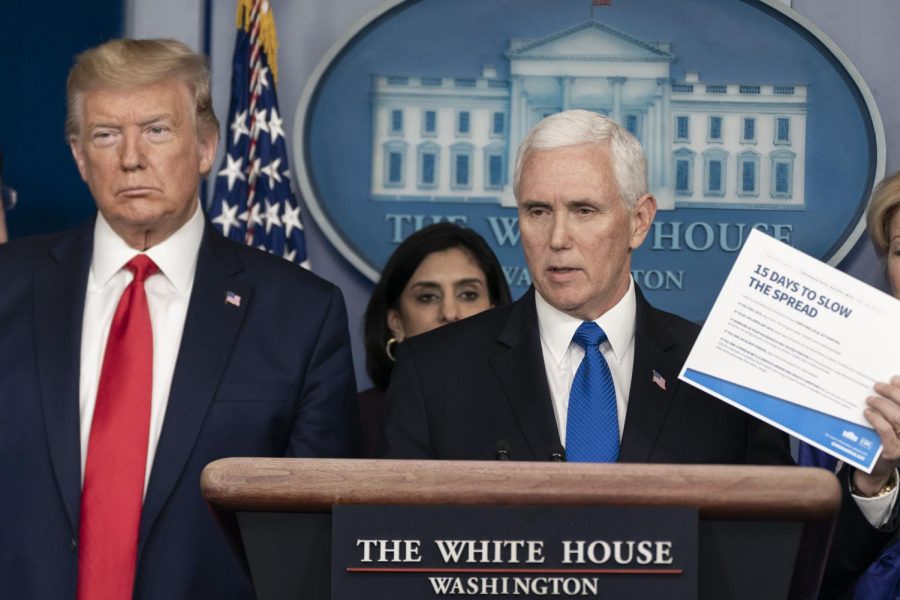Republicans propose $1 trillion in emergency aid for businesses, individuals experiencing income loss from COVID-19 outbreak
President Donald J. Trump joins Vice President Mike Pence as he addresses his remarks at a coronavirus (COVID-19) update briefing Wednesday, March 18, 2020, in the James S. Brady Press Briefing Room of the White House.
March 20, 2020
On Thursday, Republicans released a proposal, expected to cost $1 trillion, as a boost to the economy for the unexpected closings of small businesses, restaurants, hotels and other industry slowdowns because of the coronavirus (COVID-19).
In an article for NBC News, Laura Egan reported that the proposal includes direct payments to many Americans.
Egan reports that payments would be made on a tiered scale.
The first tier would include workers making up to $75,000, based on their 2018 tax return. Those individuals would be eligible for a $1,200 payment. Couples filing jointly would receive $2,400.
Payments would become progressively less for wage earners from $75,000, up to the cap figure of $99,000. Anybody making more than that in 2018 would not be eligible for a direct payment.
Persons who have very low or no tax liability, but who made at least $2,500 of qualifying income would only be eligible for $600, or $1,200 if couples filed jointly.
The proposal also includes $150 billion in emergency aid for small businesses and impacted industries. Passenger airlines would receive a proposed $50 billion in aid and cargo air carriers could receive $8 billion.
In an opinion piece by the Editorial Board of The New York Times the general understanding that the United States could have not prepared for the economic downfall of what COVID-19 has caused.
“The crisis requires an urgent response from the federal government, and the most important step is simple: Send $2,000 to every American, immediately,” stated the Board.
Sen. Lindsey Graham (R-SC) expressed opposition to the proposal based on the opinion that a $1,000 check isn’t enough.
“I’m not looking to send people a government check. I’m looking to keep their paychecks coming. And if we don’t do that, we’re making a huge mistake,” Graham told reporters Wednesday.
The democratic party has stated support for this proposal, but according to Minority Leader Senator, Chuck Schumer, more can be given.
“That [amount suggested by the White House] might help families cover rent, groceries for a month, but then what? If we are going to do it, it’s got to be bigger, more generous and more frequent than what I’ve heard,” Schumer said Thursday.


